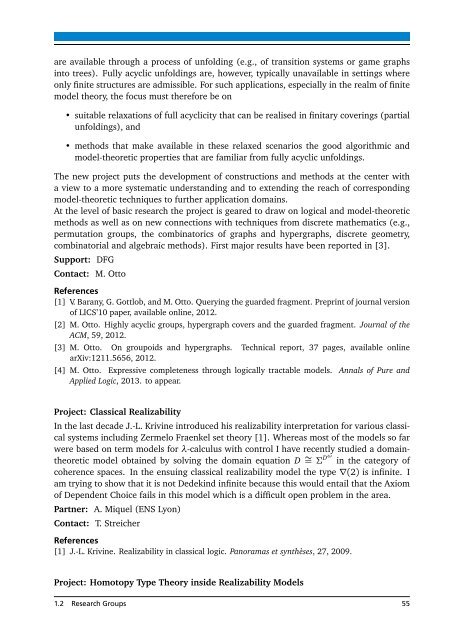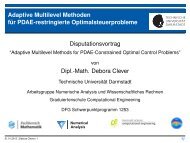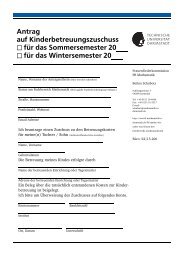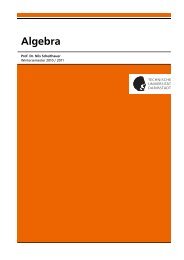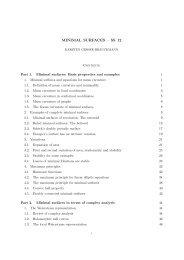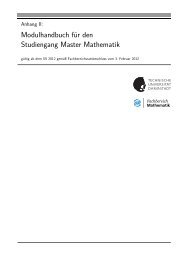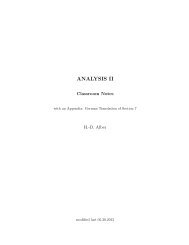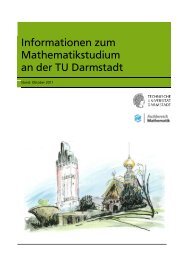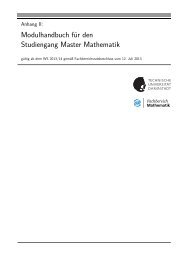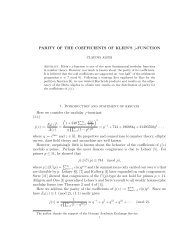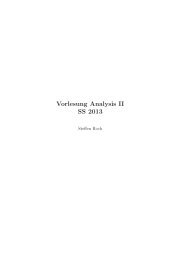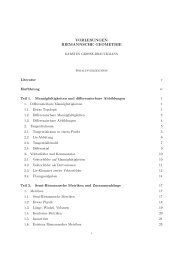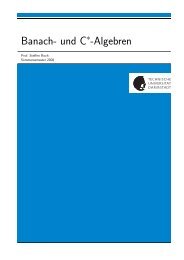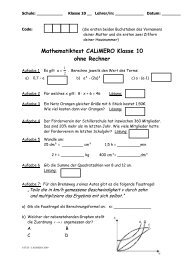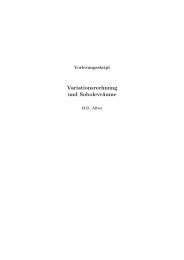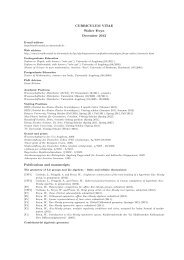Biannual Report - Fachbereich Mathematik - Technische Universität ...
Biannual Report - Fachbereich Mathematik - Technische Universität ...
Biannual Report - Fachbereich Mathematik - Technische Universität ...
Create successful ePaper yourself
Turn your PDF publications into a flip-book with our unique Google optimized e-Paper software.
are available through a process of unfolding (e.g., of transition systems or game graphs<br />
into trees). Fully acyclic unfoldings are, however, typically unavailable in settings where<br />
only finite structures are admissible. For such applications, especially in the realm of finite<br />
model theory, the focus must therefore be on<br />
• suitable relaxations of full acyclicity that can be realised in finitary coverings (partial<br />
unfoldings), and<br />
• methods that make available in these relaxed scenarios the good algorithmic and<br />
model-theoretic properties that are familiar from fully acyclic unfoldings.<br />
The new project puts the development of constructions and methods at the center with<br />
a view to a more systematic understanding and to extending the reach of corresponding<br />
model-theoretic techniques to further application domains.<br />
At the level of basic research the project is geared to draw on logical and model-theoretic<br />
methods as well as on new connections with techniques from discrete mathematics (e.g.,<br />
permutation groups, the combinatorics of graphs and hypergraphs, discrete geometry,<br />
combinatorial and algebraic methods). First major results have been reported in [3].<br />
Support: DFG<br />
Contact: M. Otto<br />
References<br />
[1] V. Barany, G. Gottlob, and M. Otto. Querying the guarded fragment. Preprint of journal version<br />
of LICS’10 paper, available online, 2012.<br />
[2] M. Otto. Highly acyclic groups, hypergraph covers and the guarded fragment. Journal of the<br />
ACM, 59, 2012.<br />
[3] M. Otto. On groupoids and hypergraphs. Technical report, 37 pages, available online<br />
arXiv:1211.5656, 2012.<br />
[4] M. Otto. Expressive completeness through logically tractable models. Annals of Pure and<br />
Applied Logic, 2013. to appear.<br />
Project: Classical Realizability<br />
In the last decade J.-L. Krivine introduced his realizability interpretation for various classical<br />
systems including Zermelo Fraenkel set theory [1]. Whereas most of the models so far<br />
were based on term models for λ-calculus with control I have recently studied a domaintheoretic<br />
model obtained by solving the domain equation D ∼ = Σ Dω in the category of<br />
coherence spaces. In the ensuing classical realizability model the type ∇(2) is infinite. I<br />
am trying to show that it is not Dedekind infinite because this would entail that the Axiom<br />
of Dependent Choice fails in this model which is a difficult open problem in the area.<br />
Partner: A. Miquel (ENS Lyon)<br />
Contact: T. Streicher<br />
References<br />
[1] J.-L. Krivine. Realizability in classical logic. Panoramas et synthèses, 27, 2009.<br />
Project: Homotopy Type Theory inside Realizability Models<br />
1.2 Research Groups 55


